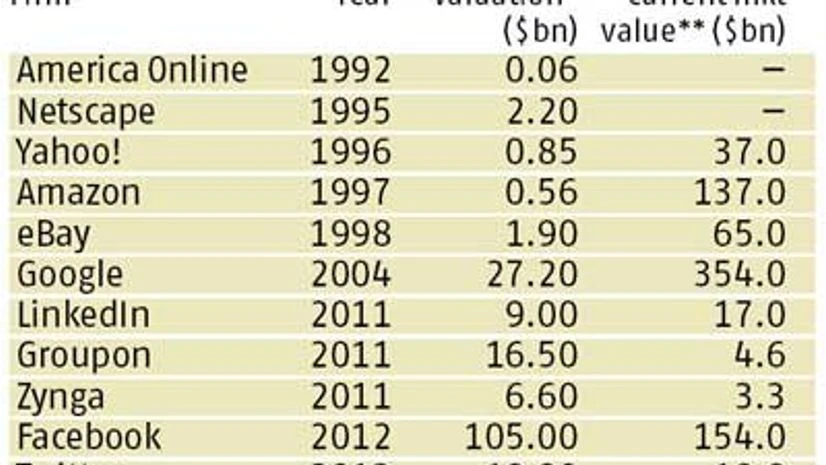The Chinese e-commerce behemoth Alibaba Group filed paperwork on Tuesday in the United States to sell stock to the public for the first time, in an embrace of the global capital markets that represents a coming-of-age for China's booming internet industry.
"Alibaba is the fastest-growing internet company in one of the fastest-growing economies in the world," said Sameet Sinha, an analyst with B Riley & Company, a boutique investment bank in Los Angeles. "They are like an Amazon, an eBay and a PayPal."
In the filing, Alibaba said it intended to raise $1 billion in an initial public offering (IPO) - a figure used to calculate its registration fee. But the company is expected ultimately to raise $15 billion to $20 billion, which would make it the biggest American IPO since Facebook's $16-billion offering in May 2012.
When it makes its debut on the New York Stock Exchange or the Nasdaq market, Alibaba is also expected to have a share price that could value the company at roughly $200 billion - more than the market value of Facebook, Amazon.com or eBay, although still trailing that of Google.
The immense size of the IPO means Alibaba shares will probably find a home in a broad swath of mutual funds and pension funds - and so indirectly in the portfolios of small investors globally.

Wall Street has been eagerly awaiting the Alibaba IPO, seeing it as perhaps the best chance yet to buy into China's growth. Online shopping there is expected to grow at an annual rate of 27 per cent, according to iResearch Consulting Group, and Alibaba is the leader in that area. Yet the offering will also divulge a company that is relatively unknown in the West and whose complex web of businesses and dealings may put off potential shareholders.
Alibaba warned prospective investors that Chinese laws and regulations are difficult to understand and predict. In addition, the prospectus says that Alibaba's management and major shareholders will control the board, giving ordinary shareholders no power over the direction of the company.
In China, Alibaba's brands are household names. It operates an online shopping center, Tmall, where global companies like Walt Disney, Apple, L'Oreal, Nike and Procter & Gamble have set up virtual storefronts to sell products directly to Chinese shoppers. Another of its sites, Taobao, is aimed largely at small Chinese firms that want to sell items to Chinese consumers.
The company's digital payment affiliate, Alipay, not only handles transactions on its sites, but is also widely used as a mobile payment system on cellphones in China, much as credit cards are used in other countries. It handled $519 billion worth of payments last year.
Last year, the value of all merchandise sold on Alibaba exceeded $248 billion, more than the volume on eBay and Amazon combined. In the last three months of last year, nearly 20 per cent of the purchases on Alibaba were made through mobile phones.
American companies like Google and eBay can only dream of making the kind of profit margin that Alibaba enjoys. In the 2013 calendar year, Alibaba had net income of $3.56 billion on revenue of $7.95 billion. That translates into a profit margin of roughly 45 percent. In comparison, eBay mustered a 17.8 per cent margin.
Alibaba has much higher profit margins than American Internet companies, analysts say, because its costs are low.
Alibaba is one of China's top three Internet players, along with the search engine company Baidu and the media and gaming conglomerate Tencent, but is bigger and more profitable than those rivals.
Jack Ma, Alibaba's founder, is the biggest individual shareholder, owning 8.9 per cent of the stock; he is followed by his longtime lieutenant, Joseph C Tsai, who owns 3.6 per cent.
When Yahoo first bought a 40 per cent stake in 2005, it valued Alibaba at just $2.5 billion. Six years later, when a consortium of investors took another stake, the company was valued at about $32 billion. Now, analysts estimate that Alibaba may be worth anywhere from $130 billion to $235 billion.
Many details of the offering, such as the share price and the number of shares to be sold, have not yet been set. Shares are not expected to begin publicly trading for several months, as the Securities and Exchange Commission reviews Alibaba's offering materials.
Alibaba amassed its multibillion-dollar fortune a little at a time, shrewdly capitalising on two trends - Internet and China's growing prosperity.
The company does some business overseas in markets like Russia and Brazil, and has invested in several American companies. It is also building an American online marketplace called 11 Main.
But in its prospectus, Alibaba emphasized that it planned to concentrate on the Chinese market, one whose potential it believes has not been fully tapped. It cited statistics showing that only about 45.8 per cent of the country's population uses the Internet, significantly lower than in the United States and Japan. And only about 49 per cent of customers in the country shopped online. Yahoo, which currently owns about 22.6 per cent of Alibaba on a fully diluted basis, is set to sell 208 million shares in the offering, leaving it with a roughly 13.6 per cent stake. Other big shareholders, like SoftBank, the American private equity firm Silver Lake Partners and the Russian entrepreneur Yuri Milner, are considered unlikely to sell much stock.
The company was set up in 1999 by Ma, then a 34-year-old former English teacher, and 17 others who worked out of Ma's modest apartment in the eastern city of Hangzhou. The company's first venture was Alibaba.com, a site designed to connect foreign buyers with Chinese manufacturers. The site was started just months before China joined the World Trade Organization. It eventually became a beneficiary and contributor to the explosive growth in Chinese exports in the ensuing years.
©2014 The New York Times News Service

)
